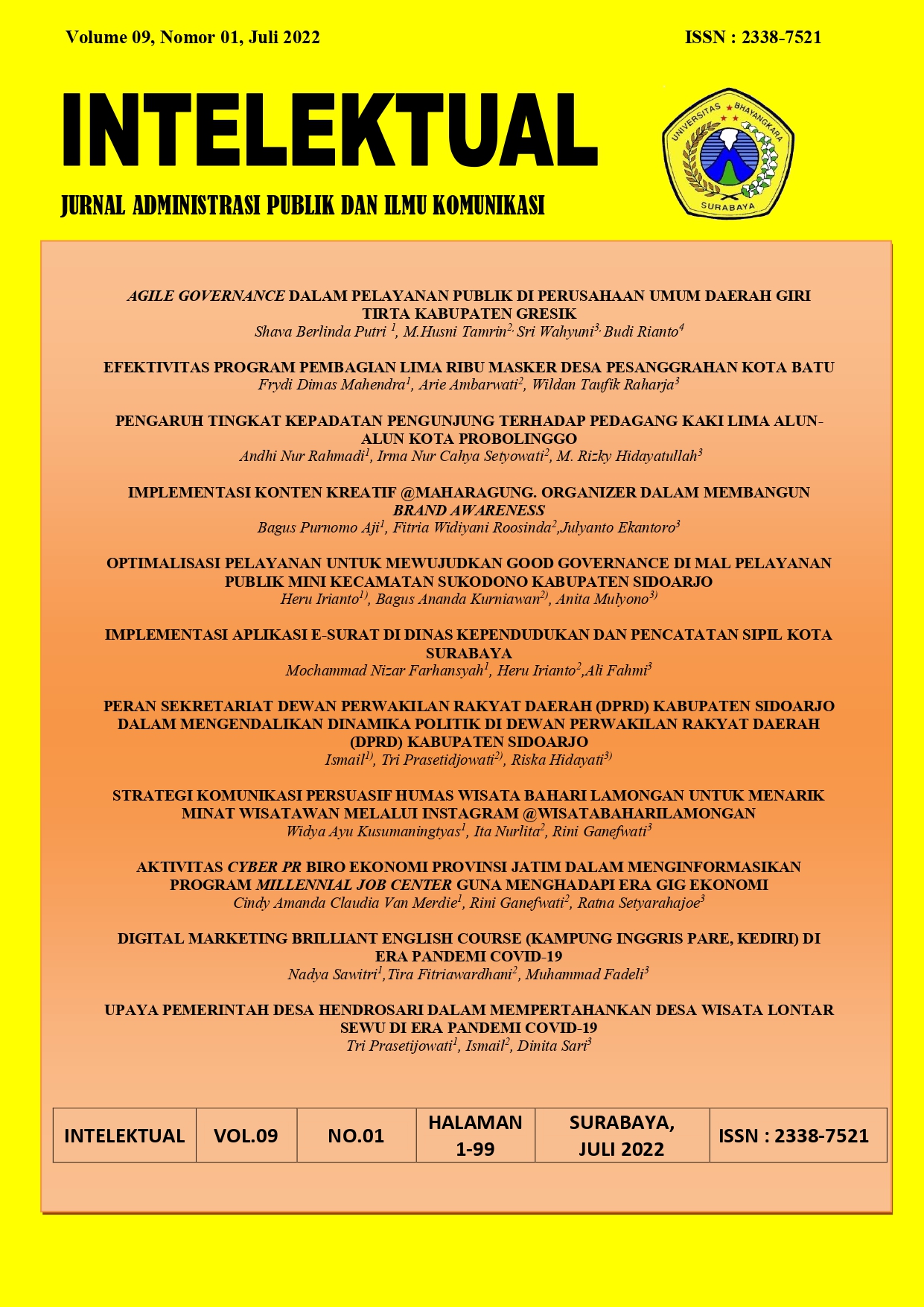IMPLEMENTASI APLIKASI E-SURAT DI DINAS KEPENDUDUKAN DAN PENCATATAN SIPIL KOTA SURABAYA
Isi Artikel Utama
Abstrak
This study aims to describe the use of the E-Letter application in the implementation of an online disposition system in the Department of Population and Civil Registration of the City of Surabaya. In supporting the use of digital-based bureaucracy in the City of Surabaya. The method used in this study is a qualitative method, with a descriptive type. The location of this research was carried out at institutions that use the E-Letter application in carrying out online dispositions and also the automation of the filing system carried out by the Surabaya City Population and Civil Registry Service. As the agency in charge of the population administration bureaucracy in the City of Surabaya. The determination of the informants used in this study was carried out by purposive sampling technique. Meanwhile, data collection techniques were carried out by means of in-depth interviews with informants such as staff, civil servants and superiors, field observations, documentation of activities when using the application directly, as well as the use of written documents as other or secondary sources of information in this study. Furthermore, the data analysis technique is by means of data reduction, data presentation and drawing conclusions. Through this research, the researcher uses the research results to later be examined using the Implementation indicators from Edward III with the Disposition Indicators which need to experience a little improvement because they still have many negative factors such as a lack of competent people and are involved in this problem
Rincian Artikel
Authors who publish with Intelektual: Jurnal Administrasi Publik dan Ilmu Komunikasi agree to the following terms:
- The author retains copyright licensed under Creative Commons Attribution-NonCommercial 4.0 (CC BY-NC 4.0), which allows others to remix, adapt, and expand on the author's work non-commercially, and even if someone else's new work must also acknowledge the author and is non-commercial, they do not need to license their derivative works on the same terms.
- Authors are permitted and encouraged to post their work online (e.g., in institutional repositories or on their websites) before and during the submission process, as this can lead to productive exchange, as well as earlier and greater citation of the published work ( See Impact of Open Access). Authors can archive preprints and postprints or publisher/PDF versions.

